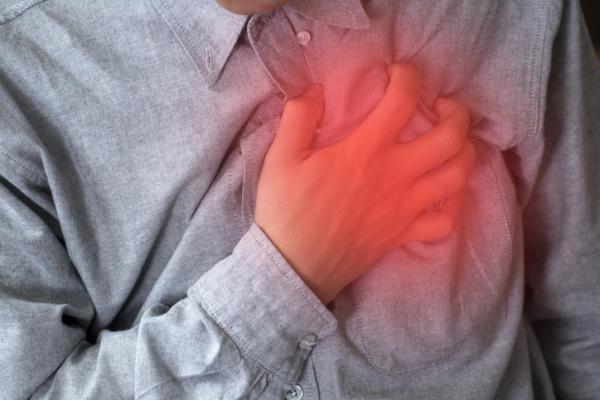
Getty Images
July 13, 2022 — Adults with abnormal heart metabolism are up to three times more likely to experience life-threatening arrhythmias (an irregular heart rhythm), and MRI techniques could be used to detect the condition and predict future sudden cardiac death (SCD), according to a small, but rigorous study led by Johns Hopkins Medicine researchers.
The findings were published June 22 in JCI Insight.
“We believe this is the first time that impaired cardiac metabolism in people has been linked to an increased risk of life-threatening arrhythmias or sudden cardiac death,” says study senior author Robert Weiss, M.D., professor of medicine at the Johns Hopkins University School of Medicine. “This could open a window for a whole new approach, a metabolic approach for treating or preventing severe arrhythmias, which is something that is not currently available in cardiology.”
Sudden cardiac death accounts for 50% of all cardiovascular deaths in the United States, claiming more than 300,000 American lives annually, according to the American Heart Association. Currently, an implantable cardioverter-defibrillator (ICD) — a small, battery-powered device placed in the chest to detect and stop irregular heart rhythms — is the primary means of preventing SCD in high-risk patients. The device continuously monitors the heart rhythm and delivers electric shocks, when needed, to restore a regular heart rhythm. The battery life of an ICD is typically between five to seven years.
“Over seven years, 60%–70% of these devices never discharge to save a life,” says T. Jake Samuel, Ph.D., first author of the study and fellow in cardiology at Johns Hopkins Medicine. “We’re spending billions of dollars a year on ICDs that are implanted and have procedural and postprocedural risks. There is a need for noninvasive approaches to better assess risk for who needs or doesn’t need an ICD to prevent sudden cardiac death in people.”
For their study, Samuel and colleagues measured the levels of adenosine triphosphate (ATP), the primary chemical cellular energy source, in the hearts of 46 people prior to getting an ICD for primary prevention. The cardiac ATP levels were measured on clinical magnetic resonance imaging (MRI) scanners using a magnetic resonance spectroscopy (MRS) technique developed at Johns Hopkins Medicine by Paul Bottomley, Ph.D., a co-author on the study, to determine which patients had abnormal ATP metabolism. All patients were followed up every three to six months for an average of 10 years to determine which patients had appropriate ICD firings for life-threatening arrhythmias.
Results showed that people with low cardiac ATP levels (impaired metabolism) had a three-fold higher risk of sudden cardiac death (if not saved by ICD intervention) compared to those with normal ATP metabolism. This was still the case when adjusted for low left ventricular ejection fraction, the metric currently used to determine the need for a primary prevention ICD.
“The ICD was never needed in roughly 80% of those with normal cardiac ATP levels in the 10 years during the study period,” Samuel and colleagues report. They say the study findings could complement current approaches and lead to better predictions for who’s most likely to need, or not need an ICD. However, they stress, that more studies are needed to assess different and larger populations.
“But we’re excited about these truly new findings, arguably the first in people, and believe they can be transformative on how doctors assess sudden cardiac death risk,” Weiss says. “Once we have confirmed that metabolism and SCD are linked, we hope to study which drugs preserve and improve ATP metabolism, and whether they can be used to reduce SCD risk.”
In addition to Weiss, other researchers include T. Jake Samuel, Michael Schär, Katherine Wu, Angela Steinberg, Mark Anderson, Gary Gerstenblith and Paul Bottomley from the Johns Hopkins University School of Medicine; An-Chi Wei from the National Taiwan University in Taipei, Taiwan; and Gordon Tomaselli from Albert Einstein College of Medicine in Bronx, New York.
No conflicts of interest to report.
This research was supported by the DW Reynolds Foundation, the NIH (grants HL61912, HL056882, HL103812, HL132181, HL140034) and the Russell H. Morgan and Clarence Doodeman endowments at Johns Hopkins
For more information: https://www.hopkinsmedicine.org/


 November 14, 2025
November 14, 2025 









